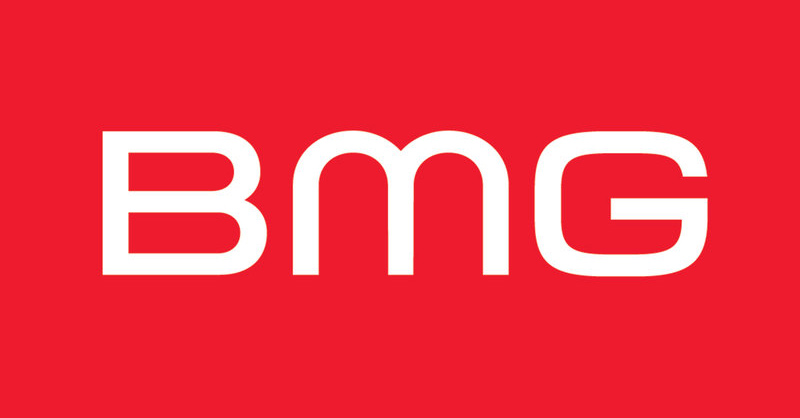
German media conglomerate Bertelsmann reported on Thursday that revenues rose to €8.2 billion ($9.56 billion) in the first half of 2018, the highest result in 11 years, with profits exceeding €501 million ($584 million). Bertelsmann, led by chairman and CEO Thomas Rabe, said first-half growth was driven by its digital and growth businesses. “Thanks to numerous strategic advances, the international media, services, and education company further improved its growth profile, and again achieved group profit of over half a billion euros,” the company said in a statement.
Bertelsmann’s revenue growth rose to 2.4 percent (half year 2017: 1.4 percent), while the group’s growth businesses, including music arm BMG, collectively achieved a 9.2 percent organic increase in revenues to €2.9 billion ($3.38 billion), compared to €2.7 billion in the first half of 2017. These businesses now account for around one third of total revenues. “The digital activities of RTL Group, Fremantle Media, Arvato and Bertelsmann Education Group did notably well,” the company said. “RTL Group, BMG and Bertelsmann Education Group also reported growth.”
Despite high negative exchange rate effects — in particularly from the U.S. dollar — reported revenues were up by 1.3 percent to €8.2 billion (half year 2017: €8.1 billion). The company added that Bertelsmann generates approximately 20 percent of its revenues in the U.S.
As for Bertelsmann’s music arm, the firm reported sustained growth for BMG, which further enhanced its market position in the first six months of the 2018 financial year. Despite negative exchange rate effects, revenue increased by 3.3 percent to €241 million ($281 million), compared to €233 million in the year earlier period. In a note to employees obtained by Billboard, BMG’s revenue growth was actually 9.2%, if the negative currency effects were stripped out of the numbers, BMG CEO Hartwig Masuch wrote. “These figures are significantly better than some of our major competitors and come in the face of some very negative currency effects,” he told staffers in his note. “Growing revenue is important, but we are doing so sustainably and paying a higher percentage of revenue to our artists than our competitors.”
Unlike the major label competitors and most independent labels, the BMG business model allows its artist to either own their masters and/or have control passed back to them after a certain period of time. This insures a higher payout to artists.
“Doing what you say you will do has often been a rare commodity in the music business,” Masuch’s note observed. “At BMG we like to do things differently: say what you mean, mean what you say – and then get it done.”
The revenue increase was fueled by growth in its recorded music and production music businesses, which was up 38% over the same period last year, according to Masuch’s note to employees. Overall, BMG’s recorded music operation now comprises about 35% of overall revenue, or nearly €85 million $99 million), up from about €62 million ($72 million) in the first half of 2017.
That means that publishing revenue totaled about €156 million euros ($181.7 million) in the first half. The company said its music publishing business “proved stable.”
“We achieved this increase almost entirely through organic growth,” Masuch observed in his note to staffers. “Our spending on acquisitions in the first half was at its lowest since we started our initial build phase of BMG nearly 10 years ago [that has seen the company make more than 100 acquisitions].We are getting bigger and more successful not by buying companies, but by signing and developing artists and songwriters and ensuring they are paid for their music.
The company’s operating earnings before interest, taxes, depreciation, and amortization (EBITDA) rose by 5.0 percent to €42 million ($49 million) in the reporting period, compared with €40 million in the same period of the previous year. “This was based on strong performance in US and UK frontline and catalog recordings,” the company said, adding that its repertoire strategy centered on established artists resulted in its taking on the administration of publishing rights for Ringo Starr, Lenny Kravitz and Yusuf/Cat Stevens in the first half. Other signees with upcoming releases include Cypress Hill, Dido, Good Charlotte, Alice in Chains and Gabrielle.
In addition to focusing on established artists, BMG’s strategy also calls for having a global imprint so that its capabilities, reach and business model can offer an alternative to three major music companies.
“BMG artists and songwriters achieved significant chart successes in the reporting period,” the company said. “In the recorded music business, this included number-one albums for country star Jason Aldean (United States) and Australian-British singer Kylie Minogue (United Kingdom). In the publishing business, singer/songwriter George Ezra topped the UK album charts, and songwriters signed with the company were involved in three of the five biggest radio hits of the first half of the year in the United States, among other successes.”
In April, BMG acquired Big Bang & Fuzz, one of the leading production music companies in the Asia-Pacific region. In June, BMG took over the catalog of the French singer/songwriter Michel Polnareff, whose publishing rights it was already managing. In addition, it took over the name rights and selected audio and video material from the 1960s British TV program “Ready Steady Go!” Following BMG’s entry into the audiovisual segment, the company successfully licensed rights to its first major production to a well-known US distributor: Magnolia Pictures acquired regional rights to Bad Reputation, a documentary about the rock singer Joan Jett.
“We want to continue improving the company’s growth profile,” Rabe said in a statement. “To this end, we are investing heavily in our businesses, especially in creative content. So as not to jeopardize this expenditure, there is an urgent need to modernize the regulatory framework for creative industries in Europe. This concerns areas such as data protection, copyright, antitrust law, advertising law, media law, and taxation.” Source: Billboard



